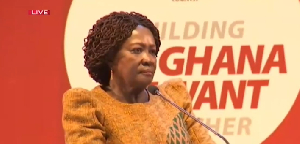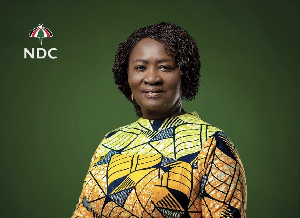Rwanda manufacturers, producers and importers are already seeking alternative sources of raw materials with China's production and export capacity expected to slow down due to the Coronavirus outbreak
Local business operators who spoke to The New Times said that to alleviate potential shortages supplies and the rise in the cost of products they are seeking alternative sources of imports.
China is one of the major sources of intermediary, capital as well as some finished products for Rwanda.
An estimated 20 per cent of Rwanda's imports are sourced from China, according to the central bank.
The imports are made up consumer goods, capital goods, intermediate goods from a number of big infrastructure projects as well as the growth of manufacturing subsector.
Capitals goods are those that are used in producing other goods while Intermediate goods are goods, such as partly finished goods, used as inputs in the production of other goods including final goods.
With the Asian country production and export capacities affected in late January and February as they dealt with the Coronavirus, multiple countries are expected to experience an interruption in their production value chains.
Rwandan producers and importers said that in their search for alternative sources, they are considering costs, logistics as well as compatibility to local value-chains.
Benjamin Gasamagera, the Chief Executive of Safari Centre, a local firm with operations in the production of sanitary products, animal feeds and pesticides, as well as trade logistics, said that among markets in consideration by local business people are Turkey and Egypt among others.
Gasamagera said that some are also looking at United Arab Emirates' capital Dubai which though it's not a producer, it's often a hub for global trade.
While the effects might not be felt in the market at the moment as there are minimal if any disruptions, Gasamagera said that around mid-year, the implications of the alternative sourcing might be felt in the local market.
This is because the alternative sourcing attract new prices as well as new logistics costs involved which are in turn passed on to the consumers.
Gasamagera added that the tide was seemingly turning for the better as there were fewer cases of infections and mortality reported in China.
As one who has an office in China, he said that having been in close communication with his staff, he said that operations are likely resume normalcy.
He however noted that the experiences from the epidemic ought to leave behind a lesson to African countries on the risks of sourcing from a single market and over-dependence.
Robert Bafakulera another major importer and trader told this paper that the ailment has had an impact on china's production and distribution capacity leading to the search for alternative sources.
Mentioning Turkey and Egypt as some of the ideal alternatives, he said that some businesses are adopting different models of sourcing including virtually placing orders.
While there is access to products in some instances, Bafakulera said that there might be a few delays as some shipping lines have slowed operations but expected to resume normal operations in the coming days.
"Local business people are also very dynamic, they seek alternative sources and products as well as shipping lines. Though there might be some impact minor impact in the short term in costs, in the medium term all should resume normalcy," Bafakulera who is also the Chairperson of the Private Sector Federation (PSF) said.
He also said that from his interactions with Chinese suppliers, some had already resumed operations and would be working to catch up with orders.
In an interview with this paper last week, Eddy Sebera, the Mara Phone country Chief Executive said with most of the raw materials imported from China, they were anticipating some shock.
The firm had said that they are working on alternative ways to source some of their materials from other locations in Asia, such as Turkey, Korea and Singapore.
Stephen Ruzibiza, the Chief Executive of PSF, told The New Times said that they were working with members of the body to acquire imports and necessary products from alternative markets.
Sources within the Government said that efforts are also being supported by a committee under the Prime Minister's office.
In February, central bank said that they ready to make interventions to support the interventions in the local economy at the same time ensuring least disruption to the economy.
Among the measures they could take include adjusting the monetary policy stance to support the private sector's efforts of sourcing products and coping with new prices.
Rwanda's imports from China include plastics, electronics, vehicles and spare parts, textile and apparel, iron steel and related products, rubber products, furniture as well as household consumables.
- Commonwealth countries must create 5,000 jobs everyday till 2030 - Foreign Affairs Minister
- Use COVID-19 fund to strengthen health care, immunization financing — HFFG
- Parliament records a new case of coronavirus
- Breach of coronavirus safety protocols: GMA calls for action
- Chadians line up for Sinopharm as coronavirus vaccination campaign begins
- Read all related articles













